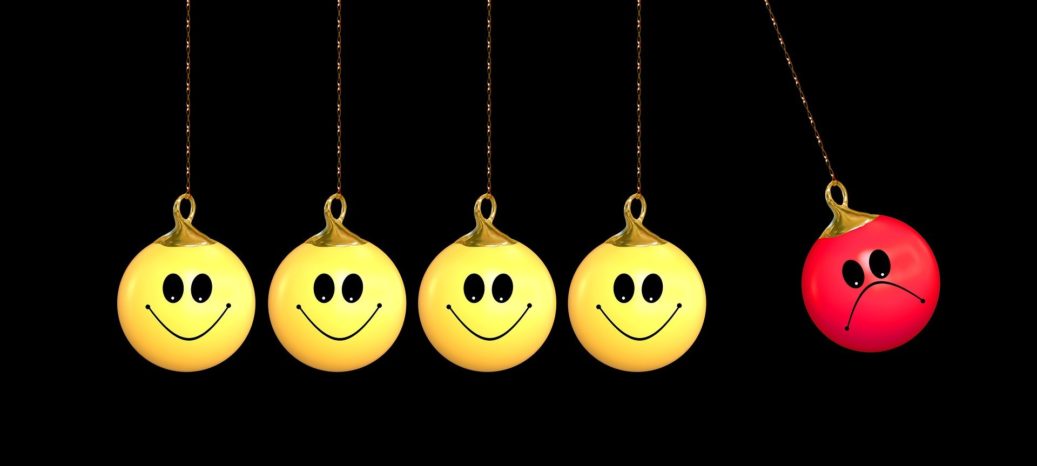Let’s be honest, disappointment exists. There have been times, and there will be more, when things don’t go the way we wish they would. Sometimes the results we wanted, and worked hard for, are less than satisfying. Maybe you are in that situation right now, a relationship has gone sideways, your perfect presentation was rejected, maybe your project didn’t turn out the way you had envisioned it.
It’s okay to be disappointed when we have to make lemonade because life has given us lemons; we don’t have to like making lemonade.
It’s okay because disappointment isn’t the same as being discontent. Disappointment is situational and temporary. Discontent is general and lingering. Discontent is an overall view of your life that persists even when a particular situation has changed or is no longer relevant.
While they are not the same, they are related. Lingering on our disappointments can lead to dissatisfaction. Disappointment still makes the lemonade. Discontent just stares at the lemons, hating them for being lemons.
How can we help ourselves in those times when disappointment threatens to become discontent? How can we move ourselves move toward contentment? As people of faith in Jesus, how can we respond to our circumstances in a biblical way that reflects who we are in Jesus and where we are in our journey to being more like him?
Don’t misunderstand, saying that we need to look at things differently is in no way meant to diminish the significance of the circumstances and situations that we sometimes face in life. There is a right and a wrong time to ask ourselves these questions. For instance, in the immediate aftermath of a tragedy, these are not appropriate questions to ask.
Discontent begins with unmet desires or expectations. We don’t have a thing or a status or a position. Our focus on what we do not have steals our contentment and can lead us to attitudes and behaviors that we do not want. Here are three questions to ask when you are feeling discontent.
1. Why do I think ____ is important to have?
This is a tougher question than it might seem. At least it’s difficult to come up with an answer to this that is easy to feel good about. This question often reveals our motives for wanting something.
We think it will make us feel good, make us look more important, make life (or some favorite activity) easier and more efficient. None of those things are necessarily bad. James warns us about wanting things simply for our own pleasure (see James 4:1-3).
Understanding our motives for wanting something can help us honestly evaluate our discontent.
2. What happens if I get (or don’t get) this thing?
This takes a bit of exploration and imagination. Ask yourself what will truly change if you do or do not have this thing that you are discontent over not having. What happens if you do not receive this new job; what happens if you do? How does your life change with this new possession, status, or situation (see the definition of contented).
It’s important here not to overplay, or underplay, the consequences of these things. Doing so may have led to our discontent in the first place—placing too much significance on any given thing gives them an unwarranted importance and significance.
3. Am I looking at a big enough picture?
This is a common enough question. But it’s necessary and it’s a good one. Usually when we put too much significance on anything it is because we are looking at that thing too narrowly. That new job would make all of life easier because I would have more money and that would make things easier.
It’s easy to think that this thing, that job, that recognition, would not just solve a problem, it would make all of life better.
Two examples from the Bible show us that a big picture is a basic element of being content. Both of them come from the Apostle Paul and both statements emphasize that contentment isn’t dependent on our circumstances or possessions (and since once he writes about contentment from prison, it’s not connected to our status either).
Writing to the believers in Philippi, Paul says that he has learned the secret of contentment and that he can be content in both plenty and in times of need (Phil. 4:11-12). It would be nice if he shared the secret, but he doesn’t. We are left to understand that because he is content in prison, both with plenty and in want, his contentment is not based on his view of his circumstances.
In First Timothy he is a bit clearer on how to be content. Writing about the dangers of the pursuit of money, Paul tells Timothy that godliness with contentment is great gain (6:6) and then he follows that with the things needed for being content: food and clothing (6:8).
This could be either a very narrow view or a very broad view. Either way, what happens is that everything else becomes less significant, they find their proper place when we look at life and ourselves in perspective.
Moving from Discontent to Satisfaction
Discontentment isn’t a place that we have to stay. It may take some work, but the lemons we are given don’t have to become lemonade, but we don’t have to sit and stare at the pile of yellow fruits hating them for being yellow fruit. Instead, if we ask ourselves a few questions, being honest about the answers, we can move toward contentment and a healthier view of our life and our circumstances.
About


